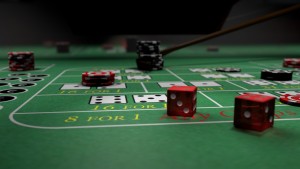You Don’t Know What You’ve Got ‘til it’s Gone
It’s one thing to miss the train. It’s another to miss the discounted ticket prices for that train.
After planning a trip for two days, my friend went online to book the fairly priced passes. But alas, they were sold out, and the forces of a capitalistic free market swayed her to opt for the overly priced, last minute option.
There was much hesitation in purchasing those tickets; hesitation which can be attributed to our loss aversion.
In Thinking Fast and Slow, Daniel Kahneman explains our natural tendency to put more effort into protecting what we already have than we do into obtaining what we have yet to gain. As a matter of fact, this predominant tendency’s commonality is backed by statistics: professional golfers are more accurate putting for par than for birdie – because they focus more when they have more to lose. And animals defending their territory far outweigh their potential thieves in ferocity and success because of the same principle.
But would loss aversion’s popularity imply that we’re naturally fear-based people? Kahneman asserts that loss aversion leads to greater caution which consequently leads to greater social stability. Fear, in its purest form, will often lead to paralysis and inaction, and that isn’t the case here. We’re not naturally fear-based; we’re naturally rational, and we’re aware of what we actually have, what we could potentially gain in the future, and what we would actually have to do in the case of future losses.
Loss aversion can lead to the extreme of never wanting to invest because it does imply risk and potential loss. Kind of like refusing to jump out of the plane, fearing that the chute won’t open. But the opposite extreme is to carelessly throw money (that we may not actually have) into the market out of desperation, not taking into account our risk tolerance or present circumstances. Kind of like jumping out of the plane without a parachute, hoping that something or someone will magically catch you and bring you to safety.
A perfect example of the latter is the amount of money spent on lottery tickets. Dr. Daniel Crosby, behavioral finance expert based in Atlanta, GA, has often highlighted the fact that the total amount spent on tickets is an exponential multiple of the actual jackpot. Furthermore, the lower the total household income, the greater the amount spent on these tickets. Let’s say that the family’s spending $10 every week on these tickets. In one year, they will have spent $520. Over the course of 10 years, they will have spent $5,200. The likelihood of them winning the lottery is extremely slim to none. $5,200 spent. $5,200 lost. $0 return. If their budget allows for such a loss, then to each his or her own. But if not, then why wouldn’t they save and invest those same $5,200, which would not only remain, but actually grow?
Loss aversion’s a good thing, since our panic center – the amygdala – actually makes up a part of our very rationality. Courage is not careless, and growing wealth is not separable from intelligent and patient calculation. So before you jump out of the plane, make sure you have a parachute, as well as a second emergency one. Get a physical to make sure your body can handle the pressure and adrenaline rush. Don’t jump out of desperation, relying solely upon wishful thinking.
That’s why Warren Buffett’s two rules for investing are: 1.) to never lose money, and 2.) to remember the first rule.
But once you have your ducks in a row, don’t be afraid to take the plunge!








